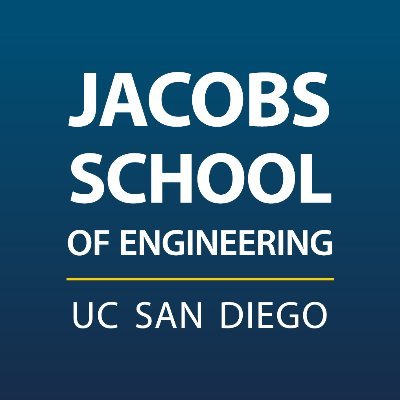News

February 12, 2019
How breast tissue stiffening promotes breast cancer development
By examining how mammary cells respond in a stiffness-changing hydrogel, researchers discovered that several pathways work together to signal breast cells to turn cancerous. The work could inspire new approaches to treating patients and inhibiting tumor growth. Full Story
February 5, 2019
UC San Diego Institute of Engineering in Medicine
At the University of California San Diego, engineers, computer scientists, physicians and clinical researchers work together to improve human health. The collaborations span the lab, the clinic and the classroom. The work addresses a broad array of medical innovations, drives the next generation of medical care, and helps people live longer, healthier lives. Full Story

February 5, 2019
Physician-Engineer Match-Making at UC San Diego
Matching physicians with engineers and computer scientists, and then providing seed funding for their research collaborations, are two critical tasks that take place through UC San Diego’s Galvanizing Engineering in Medicine (GEM) Initiative. UC San Diego clinicians identify unmet needs in patient care and then work with teams of engineers and computer scientists to solve the problem and move the technology to the clinic. Full Story

February 5, 2019
Programming White Blood Cells to Fight Pancreatic Cancer
Pancreatic cancer is the third most lethal cancer in the United States. Patients typically don’t know they have it until it’s too late, making it difficult to treat. Only 9 percent survive five years after diagnosis. But recent discoveries at the UC San Diego Institute of Engineering in Medicine are raising hope. Engineers and surgeons are working on a treatment by reprogramming white blood cells to target and eradicate pancreatic cancer tumors. Full Story

February 4, 2019
Training Clinical Engineers
UC San Diego's Clinical Bioengineering course offers undergraduate engineering students hands-on learning experience to solve clinical problems. The course reflects the Institute of Engineering in Medicine's mission to connect engineers with physicians to produce medical innovations. Full Story

January 28, 2019
Study uncovers why heart attack triggers arrhythmia in some, explores potential treatment
A team of researchers led by the University of California San Diego has identified a genetic pathway that causes some individuals to develop an abnormal heart rhythm, or arrhythmia, after experiencing a heart attack. They have also identified a drug candidate that can block this pathway. Full Story

January 24, 2019
Bioengineer describes the promise of biomaterials for tissue repair in Science
“Biomaterials that can promote tissue repair and regeneration on their own without the need for delivering cells or other therapeutics have emerged as a potentially powerful paradigm for regenerative medicine.” That’s one of the key statements in a perspective piece written by Karen L. Christman, a professor of bioengineering at the University of California San Diego in the Jan. 24 issue of the journal Science. Full Story

December 10, 2018
Undergraduate team wins 2nd place at global synthetic biology competition
A team of 11 undergraduate students from UC San Diego earned second place out of 250 teams from around the world at the International Genetically Engineered Machine (iGem) competition for their approach to creating an accurate liquid biopsy test for cancer. Full Story

December 6, 2018
Scientists cut main heart disease risk locus out of DNA by genome editing
Over the past decade we’ve learned that billions of people carry a mysterious specter in their DNA that strongly increases their risk for life threatening cardiovascular diseases, such as heart attacks, aneurysms or strokes, no matter what diet, exercise or medical regimen they follow. Now, a team led by Scripps Research scientists and involving UC San Diego bioengineers have made a major breakthrough in unveiling this medical mystery by precisely cutting the DNA culprit from the genome, which prevents blood vessel cell abnormalities related to these devastating diseases. Full Story

November 28, 2018
Easy to use 3D bioprinting technique creates lifelike tissues from natural materials
Bioengineers have developed a 3D bioprinting technique that works with natural materials and is easy to use, allowing researchers of varying levels of technical expertise to create lifelike tissues, such as blood vessels and a vascularized gut. The goal is to make human organ models that can be studied outside the body or used to test new drugs ex vivo. Full Story
